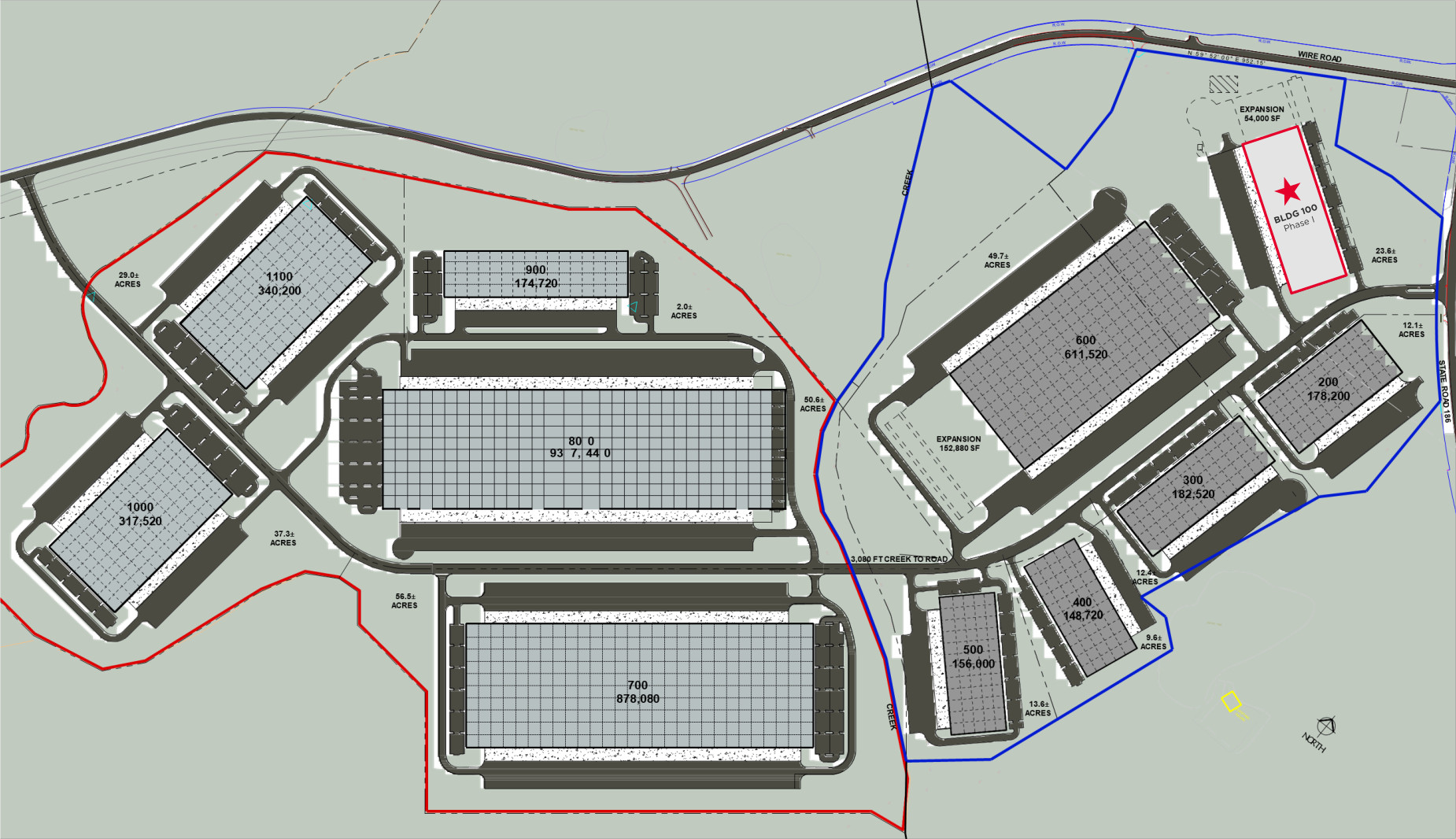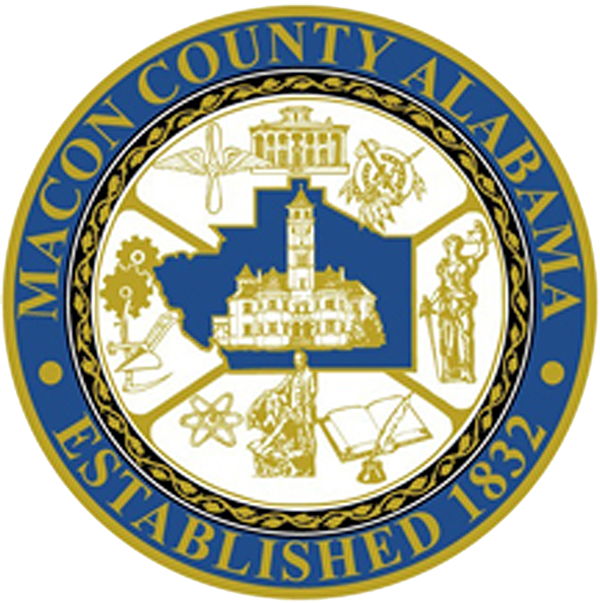Macon County logistics park project preps for initial construction
Read the original article on the Made in Alabama website.
TUSKEGEE, Alabama — Construction is scheduled to begin soon on the first building in a logistics park along Interstate 85 in Macon County that backers say could have a massive economic impact when its three phases are developed.
The project, called the Regional East Alabama Logistics (REAL) Park, stems from a partnership between the Macon County Economic Development Authority (MCEDA), Farpoint Development and local businessmen Jimmy and Wayne Bassett.
The park, developed by Farpoint, will encompass 683 acres at the site of Beck’s Turf Farm off Exit 42 on I-85. The project envisions around 13 buildings offering a combined 5 million square feet of space once the three phases are completed in seven to 10 years.
Construction is expected to begin this summer on the first building, a 169,000-square-foot expandable industrial commercial structure.
When construction is complete in the fourth quarter, it will be the only “Class A” warehouse/manufacturing building available for lease within a 40-mile radius.
“To have a park plan of this size, scope and partners with world-class abilities means we have a broad team working together bringing their own dollars and networks into landing projects and creating new jobs,” MCEDA Director Joe Turnham said.
“The right team, the right project in the right place and at the right time — this initial investment has the potential to be a tipping point in our community’s development for decades to come,” he added.
Economic Impact
Turnham said work on the Phase 1 building will generate construction jobs and a substantial economic impact while also creating ripple effects throughout Macon County.
The completed project could be transformational, he added.
An economic impact analysis conducted by the University of Alabama’s Center of Business & Economic Research shows the project will bring $386 million in new economic capital investment when fully built.
The project will add over 1,000 new direct jobs and 863 indirect jobs, according to the analysis, which was commissioned by Farpoint.
Farpoint, which has an office in Asheville, North Carolina, is actively marketing the Phase 1 building as an industrial facility for lease. The development will offer design-build, leaseback programs for industry throughout the site.
“We are very excited to launch the REAL Park alongside our strong local partners such as Opportunity Alabama, MCEDA, and of course the Bassett brothers,” said Justin Patwin, managing director at Farpoint.
“In many ways we think this project could become a regional catalyst for broader economic opportunities and reinforce the State of Alabama as a destination for global commerce,” he added.
Prime Location
The park is located two miles north of Tuskegee and 15 miles from Auburn. The location is less than 35 miles from the Kia auto assembly plant in West Point, Georgia and around 50 miles from the Hyundai manufacturing plant in Montgomery.
Turnham said the REAL Park development team has met with the Alabama Department of Commerce and numerous utilities as well as consultants in industrial development and believes that the development of a large logistics park will meet current market demand head on.
“REAL Park will better position Macon County to take full advantage of economic growth along the I-85 corridor,” said Greg Canfield, Secretary of the Alabama Department of Commerce.
“Having an available building onsite will kickstart the development team’s efforts to quickly capitalize on the possibilities in industries such as automotive, aerospace, forest products and manufacturing,” he added.


